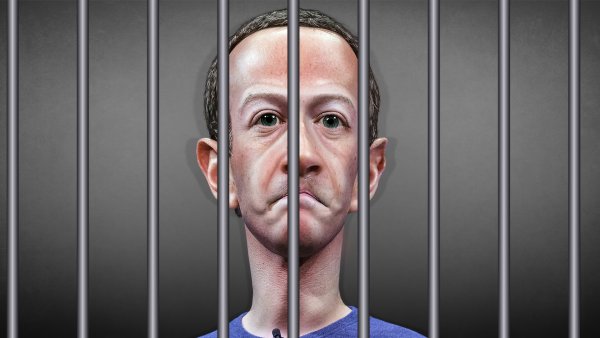Mark Zuckerberg Could End Up Behind Bars Under New UK Laws
Tags: News

Mark Zuckerberg might end up in jail if Facebook fails to comply with new safety laws online.
Nadine Dorries – British Secretary of State for Digital, Culture, Media, and Sport has warned that she was putting Mark Zuckerberg’s Facebook on broad view with her Online Safety Bill which was aimed to force online giants to act on illegal content on its platforms.
It was announced on Friday that the Bill was strengthened due to the addition of a few more criminal offenses to force the social media platforms to act on illegal content faster.
Subscribe to our Youtube channel, new videos every week:
Sensitive topics like revenge porn, fraud, sale of weapons or drugs, hate crime, smuggling, promotion of suicide, and exploitation of sex have been added to the priority list of offenses that must be removed by the respective platforms, as per the new law.
Mark Zuckerberg And Other Executives Can End Up Behind Bars In UK
As per the law, the senior executives, like Mark Zuckerberg, of the online platforms could end up in prison if they fail to act.
The Culture Secretary was asked by the Times Radio if Mark Zuckerberg, Meta’s boss, could end up behind bars if Facebook failed to comply.
She replied that she hoped the Bill would act like a “notice to the online platforms to say here it is, we’re letting you know what it is now, so starts doing what you need to do”.
She was asked again if senior executives like Mark Zuckerberg could find prison times if they failed to comply, to which she replied, “Absolutely”.
Andy Burrows is the head of child safety online policy at the NSPCC and stated that it was not the case.
READ: BANNING FACEBOOK: THE SOLOMON ISLANDS’ EFFORTS TO CURB CYBERBULLYING
‘Despite the rhetoric, the Government’s current proposals mean tech bosses like Mark Zuckerberg wouldn’t be personally liable for the harmful effects of their algorithms or failing to prevent grooming, and could only be prosecuted for failing to supply information to the regulator,’ he said.
‘It’s clear that unless the Online Safety Bill is strengthened sufficiently, criminal sanctions offer bark but no bite. Children need well-designed regulation that learns lessons from other sectors if the Bill is to match the rhetoric and prevent inherently avoidable abuse,’ he added.
Dorries rejected the idea too, of age verification online and cited the downside that any child who had access to the internet would need to verify their age.
‘And young people go onto the internet to go shopping, you know, on clothes. Do we need to ensure that they verify their age when they’re doing that?’ she said on BBC Radio 4’s Today program when asked about the issue.
Porn sites will require credit card info or government data to verify the identity of their users. The proposals were proven controversial, however, as they could be misused to track users’ porn habits. The same thing is also applicable to Mark Zuckerberg’s Facebook.
This Bill has now forced the sites to take down such negative contents which were previously being forced to be taken down.
These changes were clearly observed after three different reports from parliamentary committees warned that the draft required strengthening and more clarity for technological firms on what was expected of them if it was to offer adequate protection.
SUPPORT OUR WORK, JOIN US ON PATREON
The government added the names of these offenses on the face of the Bill to enable Ofcom to take faster enforcement action against large firms that fail to get rid of them.
‘This Government said it would legislate to make the UK the safest place in the world to be online while enshrining free speech, and that’s exactly what we are going to do,’ said Dorries.
‘Our world-leading Bill will protect children from online abuse and harms, protecting the most vulnerable from accessing harmful content, and ensuring there is no safe space for terrorists to hide online,’ she added.
Three new offenses were recommended by the Law Commission in an effort to make criminal law fit for the age of the Internet. These new offenses cover communication that is sent to threaten, cause harm, and spread fake news with an intention to cause physical, psychological, or emotional harm.
Damian Collins, chairman of the Joint Committee on the Draft Online Bill which led the scrutiny of the Bill, said he welcomed the changes and that they would benefit users.
Image credit: DonkeyHotey, CC BY 2.0, via Wikimedia Commons
Leave Comment: